Introduction to Tamago Kake Gohan
Did you have any idea what the Japanese eat for their breakfast? Well, this article will be your guide to one of their Japanese breakfast called, “Tamago Kake Gohan”. If you are familiar with Japanese’ Tamago (cooked egg) and Gohan (rice or food), then it won’t be difficult for you to understand this. But if you’re still not familiar with it, you will learn as you continue reading here.
Etymology
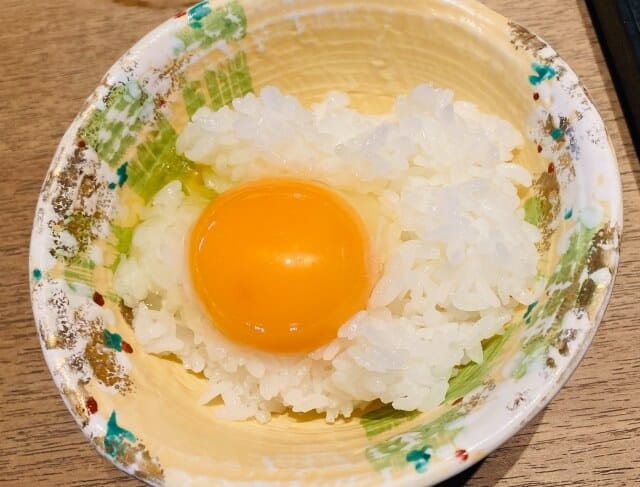
Japanese know this dish as “Tamago Kake Gohan” (Gohan means rice or food and kake means splashed or dashed). Or also it can be “Tamago Kake Meshi” (meshi means rice or food), “Tamago Gohan”, or simply “Tamago Kake”. Tamago (egg) can be “玉子” in character (cooked egg), as an alternative to the single character 卵 (raw egg). In literal translation, it is egg on rice.
What is Tamago Kake Gohan?
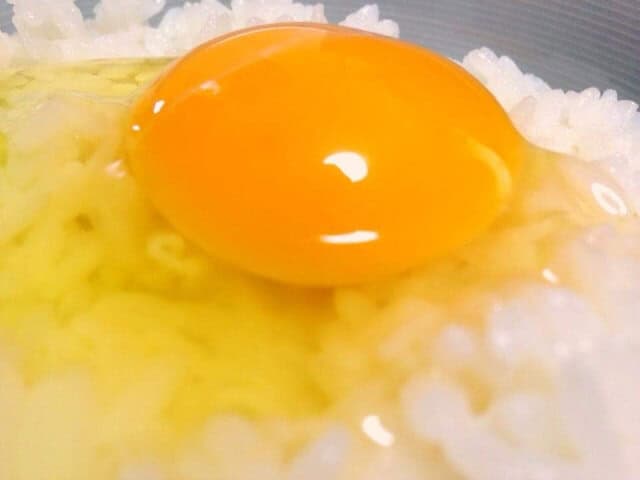
Tamago kake Gohan (卵かけご飯) is a traditional Japanese breakfast food consisting of cooked rice topped on mixed with raw egg and soy sauce. Japanese used soy sauce and mentsuyu as seasonings. Additionally, they also abbreviated it as “TKG”. They regarded this dish to be a distinctive eating culture in Japan since it includes raw eggs over rice, which is the staple food. In the rice bowl, a raw egg and Japanese rice are easily combined. The rice can be cold, freshly cooked, or reheated, and the egg could be broke immediately into the rice dish (before or after the rice) or beat in a separate bowl. Some individuals pour the egg into a “hole” made in the stack of rice.
History of Tamago Kake Gohan
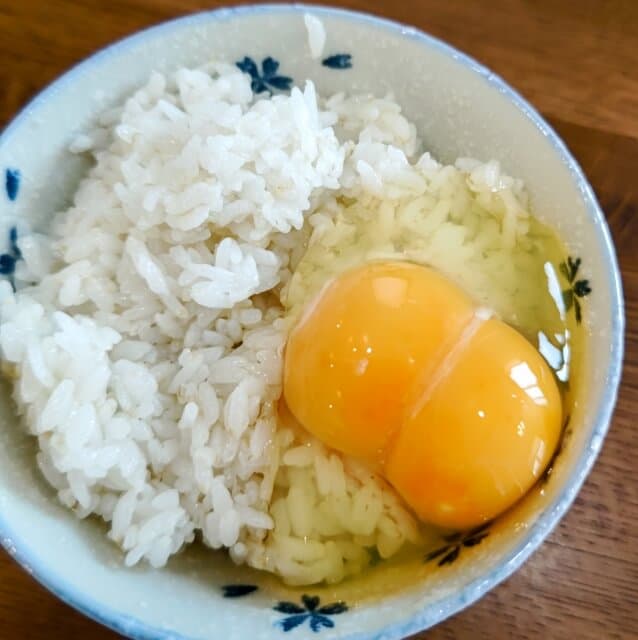
Because of the Buddhist commandment against killing animals, fish was the major meat consumed by the Japanese people. Even from ancient times chicken intake was slightly higher than that of other land animals. Additionally, the egg was not considered food for a long time. It was considered a sacrifice to the Gods in Shintoism, and people felt that eating eggs would result in punishment. People began keeping chickens as pets during the Edo Period (1603-1868). Because it was immediately discovered that unfertilized eggs did not hatch, eggs became a regular part of certain people’s meals.
As a result of their newfound understanding, they were no longer able to see an egg as a divine entity. People abandoned the notion that eating an egg represented sin, and the practice became no longer prohibited. They subsequently progressed from keeping hens as pets to keeping chickens only for the purpose of producing and collecting eggs. Nobody ever imagined utilizing eggs for such a basic meal as Tamago kake Gohan since eggs were once considered a luxury and a highly expensive food item. Ginko Kishida (1833-1905), a pioneer in a variety of fields in Okayama prefecture, is thought to have been the first to produce tamago kake Gohan.
Tamago Kake Gohan Recipe
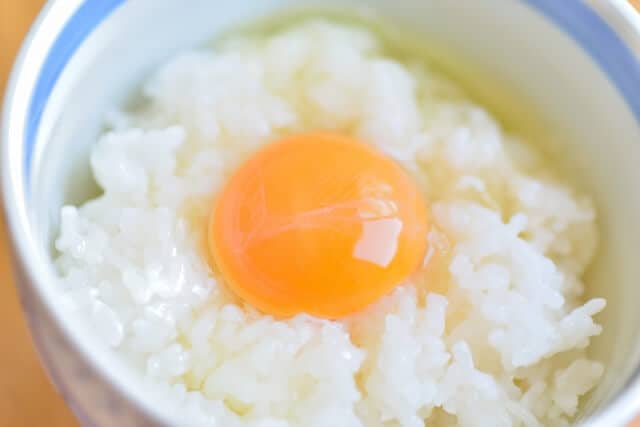
Tamago Kake Gohan Ingredients
| The Tamago Kake Gohan Ingredients for 1 person | |
| Freshly cooked rice | 140g |
| egg | 48g |
| soy sauce | 3g |
How to make Tamago Kake Gohan?
First, cook the rice. Short grain white or brown rice will work for this recipe, as long as it’s freshly cooked and hot off the stove (or out of the rice cooker).
When the rice is ready, portion it into bowls, and crack an egg over each bowl of rice.
Use chopsticks to vigorously stir the egg into the rice until the egg is fully incorporated and the mixture turns pale yellow. The rice will be creamy and almost risotto-like.
Is it dangerous to eat raw eggs in Tamago Kake Gohan?
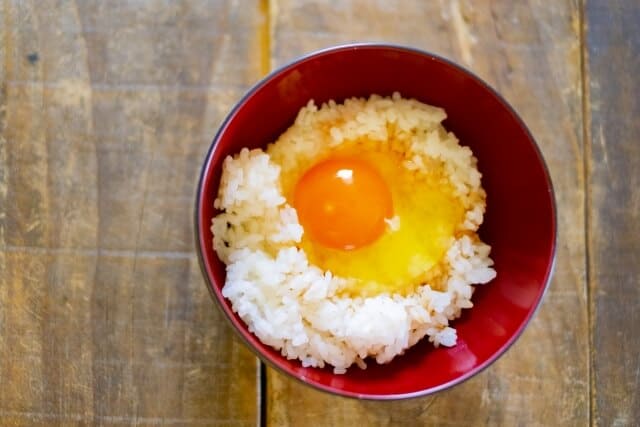
Are the eggs you can buy overseas fresh enough to be eaten raw? Do you get food poisoning? It seems that many people are uneasy and cannot easily challenge themselves. This is because, in Japan, there is a belief that eggs have a dangerous bacterium called “Salmonella “. However, Japanese people eat raw eggs that they’ve cut into the plate that contains the dish. You might think this isn’t dangerous, but it’s okay. This is because the Japanese produced raw eggs in Japan. Hygiene management prevents chickens from being infected with Salmonella, and cleans and sterilizes eggs.
Toppings to Eat With Tamago Kake Gohan
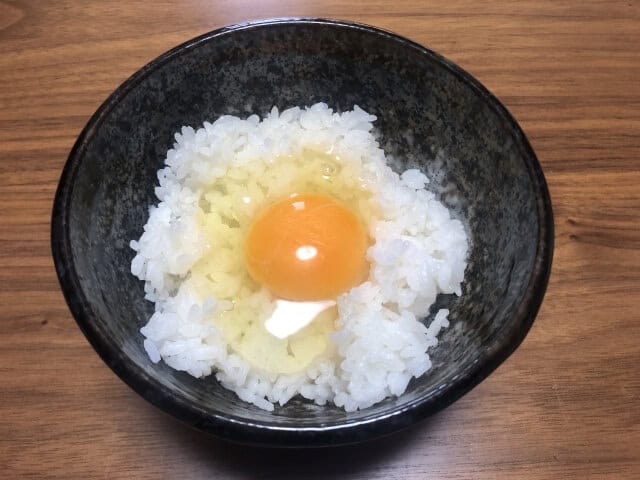
With Furikake
A simple step up from the basic tamago kake Gohan, sprinkling TKG with “furikake” (Japanese flavor sprinkles) lends that little extra flavor to the dish. There are many different kinds of furikake, but a classic that goes well with TKG is “aonori” seaweed.
With Natto
With its strong smell and gooey consistency, “natto” (fermented soybeans) is an acquired taste. However, once you get used to it, natto is also sure to become a habit. A pack of natto will almost always come with little packets of mustard and soy sauce, which can replace the soy sauce that would normally be added to TKG.
With Katsuobushi
This is another topping that some non-Japanese may be hesitant about, but are sure to warm up to after tasting it. “Katsuobushi” (dried bonito fish shavings) is an umami-filled topping used in a variety of Japanese dishes.
With Shirasu
“Shirasu,” the tiny white fish shown in the bowl above, is a type of whitebait (immature fish) that is easy to find in any Japanese grocery store. They are a popular topping for many Japanese dishes, including tamago kake Gohan.
What are the different variations of Tamago Kake Gohan?
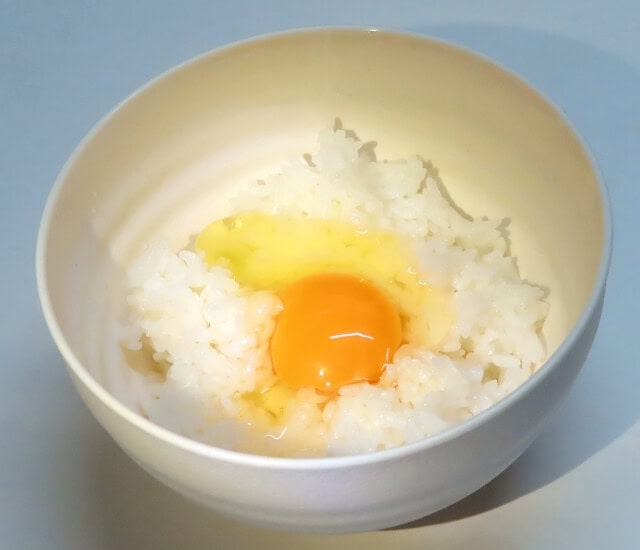
Yuzu pepper and green onion egg over rice
Adults like the flavor of this one. Yuzu pepper, which is spicy and has a delicious aroma of yuzu. In the winter season when you eat hot pot, many households have it in their kitchen.
Cream cheese and noodle soup with egg over rice
Mentsuyu is very useful not only for eating somen and soba but also for seasoning dishes such as when making simmered dishes. It goes perfectly with egg-shaped rice.
Korean-style egg-shaped rice
The fragrant sesame oil scent is perfect for rice with eggs. You can have kimchi and seaweed in Korean style. It is rice with an egg that you want to eat not only for breakfast but also for dinner.
Rice with sausage eggs
How about a little Western-style omelet rice? You can put your child’s favorite sausage on top and make a satisfying sausage omelet rice.
What are the health benefits of eating Tamago Kake Gohan?
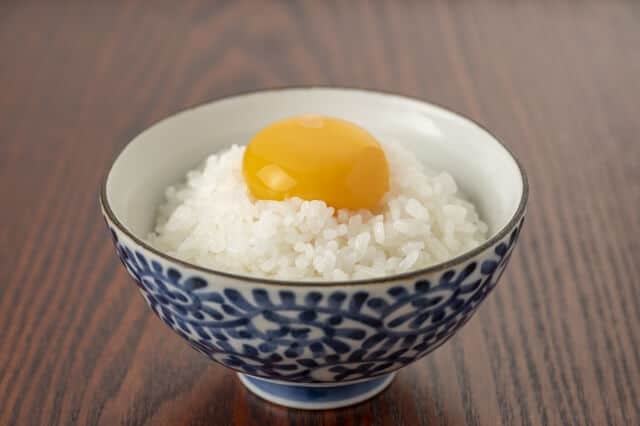
Tamago kake Gohan includes protein, fat, carbohydrates, vitamin A, B vitamins (vitamin B1, vitamin B2, niacin, vitamin B6, vitamin B12, folic acid, pantothenic acid, biotin), vitamin D, vitamin E, vitamin K. It also contains nutrients such as sodium, potassium, calcium, magnesium, phosphorus, iron, zinc, copper, etc. Additionally, it improves immunity, recovers fatigue, and prevents cancer. It has health effects such as prevention of anemia, maintenance of eye health, maintenance of bone and tooth health, mental stability, prevention of aging, and skin-beautifying effect.
Recommended Tamago Kake Gohan Restaurants
Kisaburo Farm
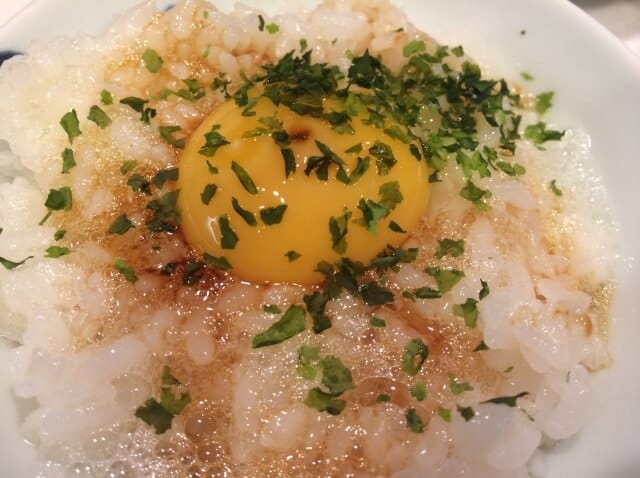
It is a shop where you can eat and compare 8 kinds of eggs carefully selected by the store manager who qualifies egg sommelier test. You can choose from a variety of distinctive eggs, such as rich eggs, refreshing-tasting eggs, and unusually colored yolk eggs. All-you-can-eat omelet rice for lunch has been a popular menu for many years.
Mensho Tokyo
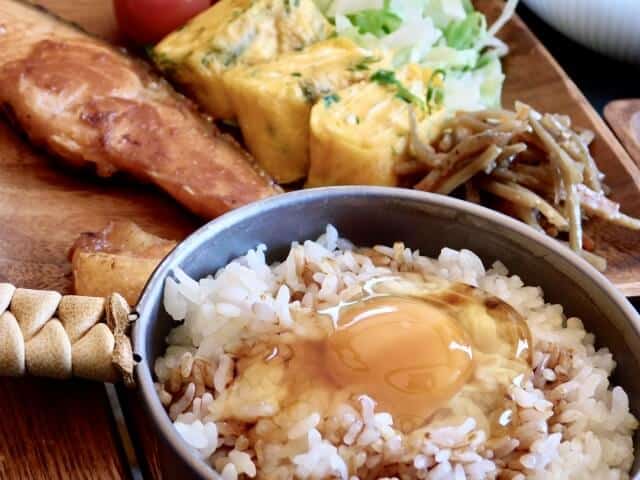
The “pepper rice” is popular at MENSHO TOKYO. You can sprinkle additional pepper on the rice cooked with ungrained pepper. When you put an egg on this pepper rice, the yolk condensed with the spiciness and flavor of pepper, will entwine and the flavor spreads throughout your mouth.
Okamadohan Torafuku
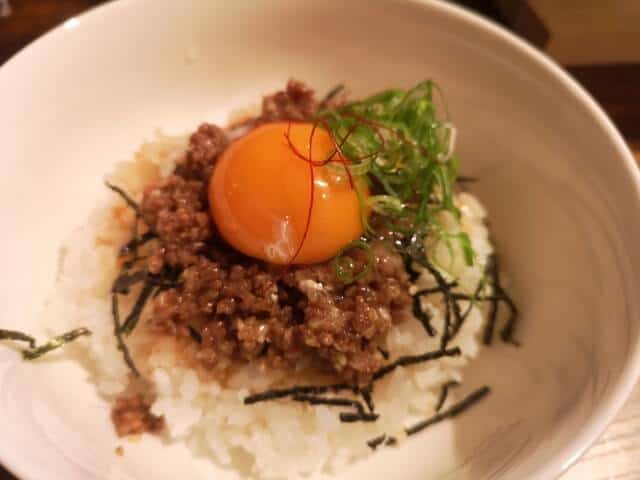
It is a restaurant where you can eat carefully selected rice from Niigata prefecture. You can enjoy the specialty rice of the restaurant and the fish and shellfish directly sent from fishing ports nationwide in various styles such as “grilled”, “boiled” and “sashimi”. At lunch, you can enjoy omelet rice. The shop recommended not only to add soy sauce for the egg.
Yakitori Miyagawa
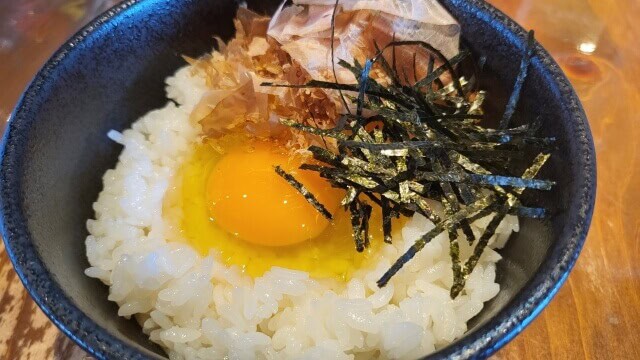
Founded in 1949 in Nihonbashi, Tokyo, Yakitori Miyagawa is a long-established yakitori restaurant that has continued for three generations. It is a restaurant where you can enjoy charcoal-grilled chicken using brand chickens from all over the country. Not only yakitori but also omelet rice is very popular here. On top of the roasted meringue, the egg yolk soaked in the sauce and soaked in the flavor is on top of the wonderful Tamago Kake Gohan.
Conclusion
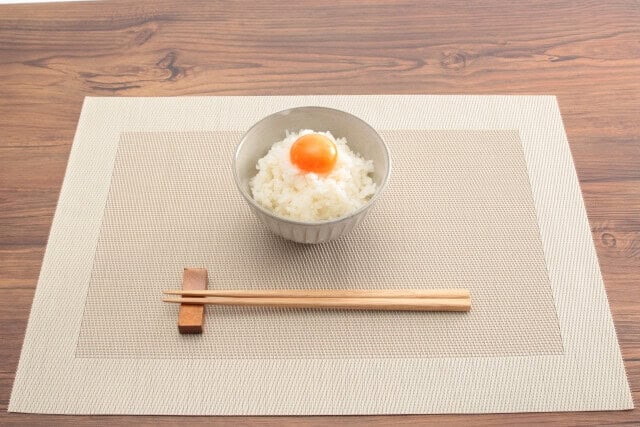
Hopefully, this article has shed some light on the greatness of tamago kake Gohan and helped alleviate any hesitation you may have had about trying this relatively hidden gem. Next time you are in Japan, be sure to try this dish for yourself. Before you go, if you want to read something like rice meals, you can consider reading up on other rice meals articles from us. We have written about the five great rice meals of Japan from a different prefecture.
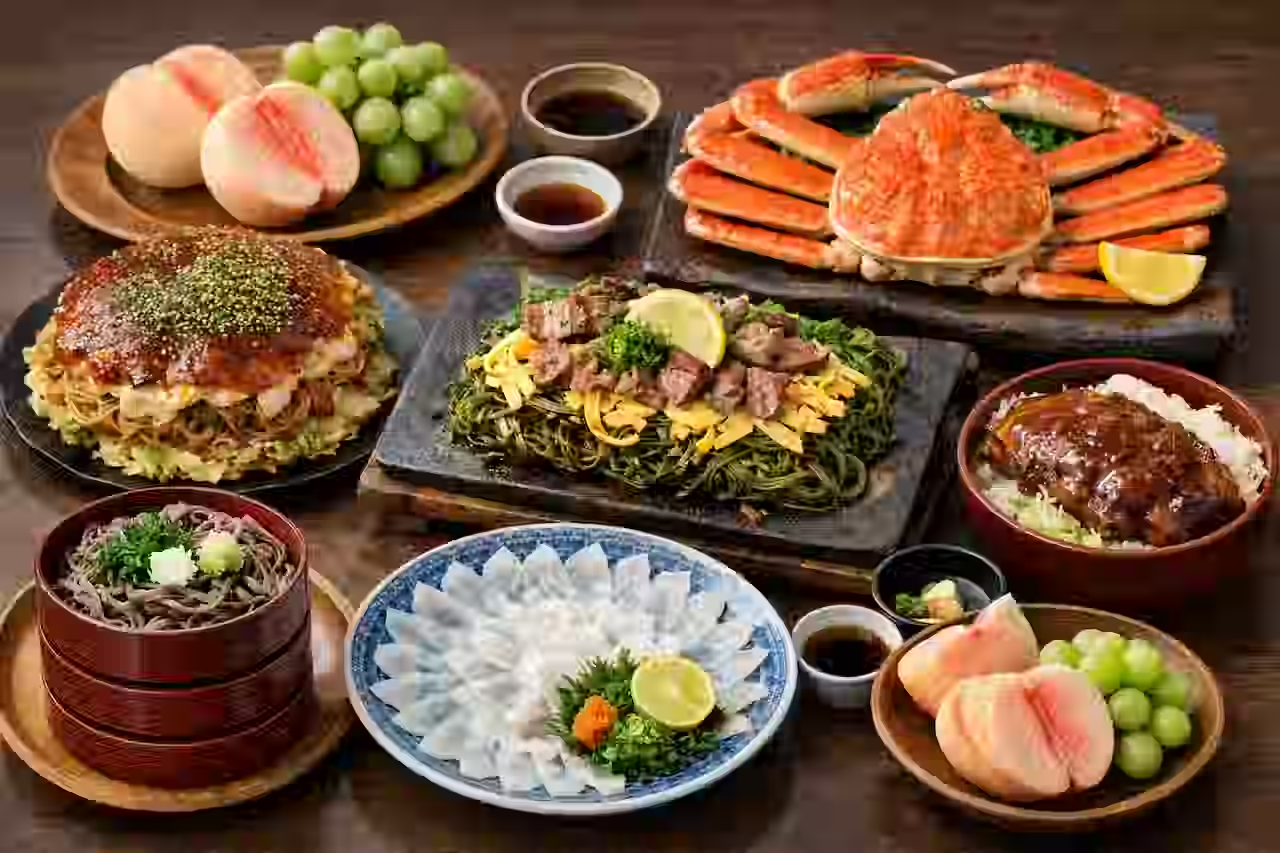
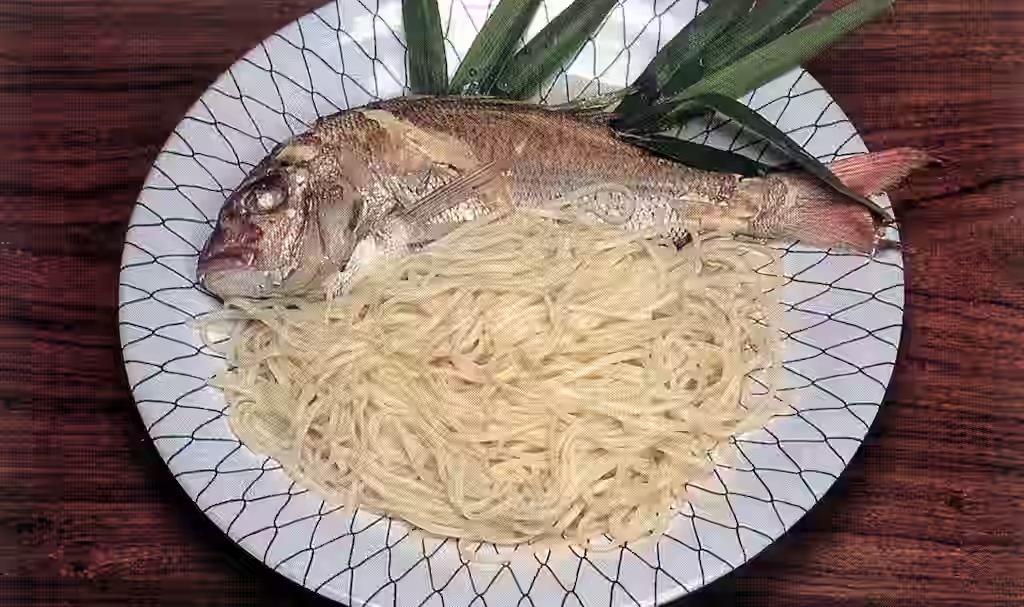

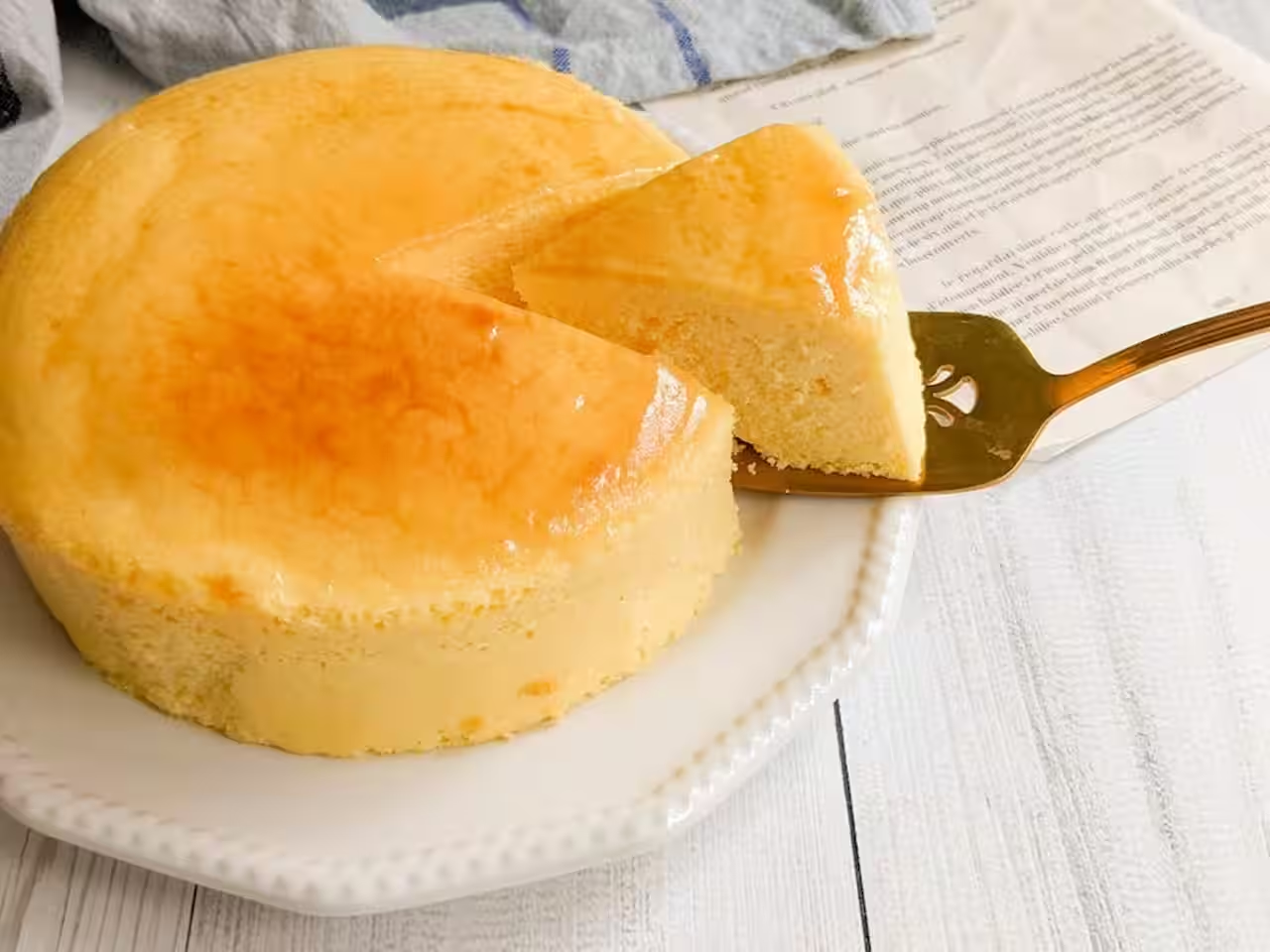
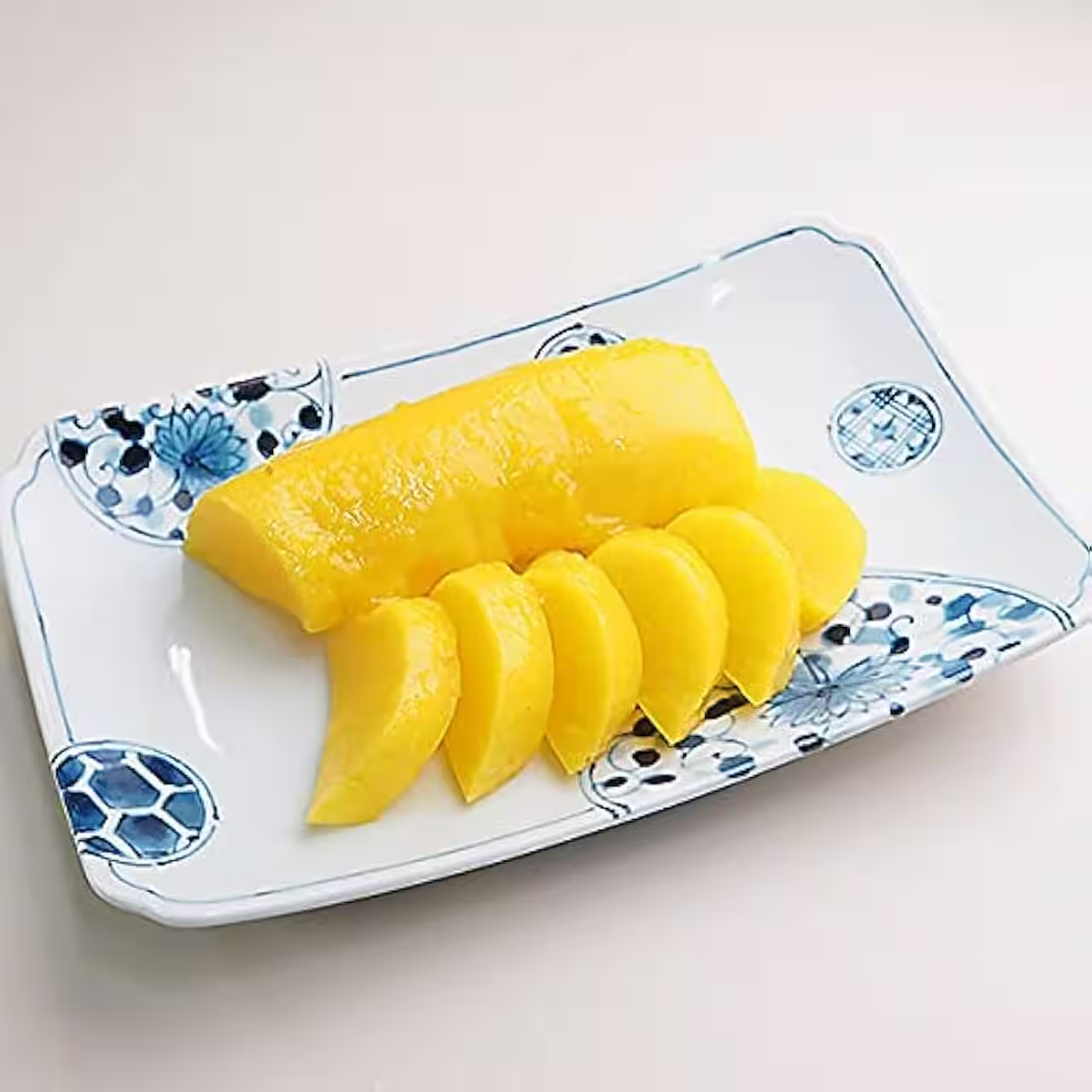

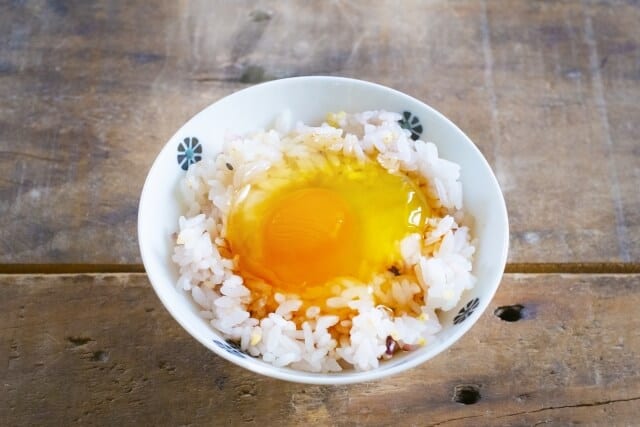
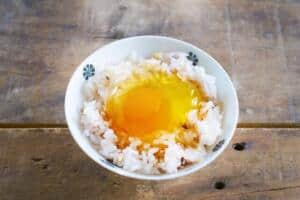
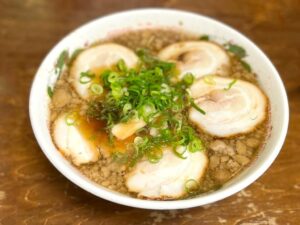
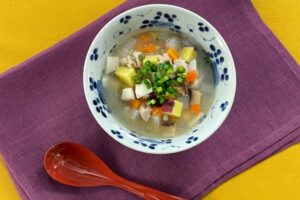
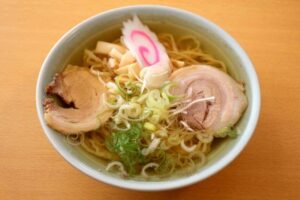
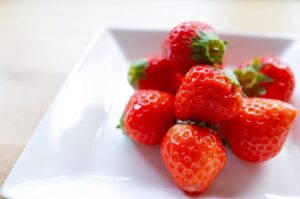

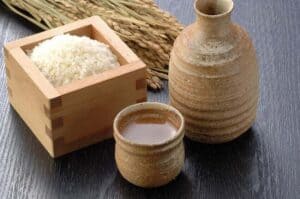
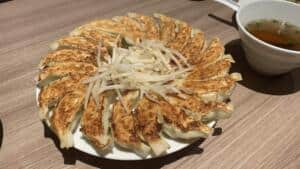
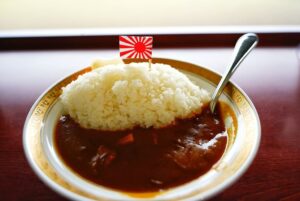
Comments